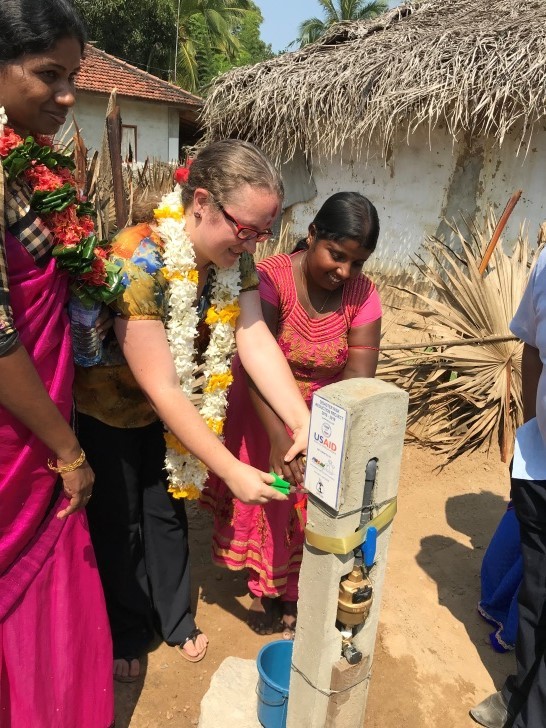Speeches Shim

On March 27, more than 70 participants from leading private, public, and civil society organizations gathered to work collaboratively on water issues as part of an International Water Day event organized with support from USAID. The focus areas were disaster risk reduction, water resource management and governance, water and sanitation, and water-related health issues like Chronic Kidney Disease. Participants discussed challenges, identified possible solutions, and formed partnerships based on common areas of interest. Following the event, a working group was formed to continue the collaboration, share ideas, and form private sector-led, cross-sectoral partnerships to address critical water issues in Sri Lanka.
Clean and Safe Water to Communities in Rural Batticaloa
With support from USAID, local organization PALM Foundation provided a water connection to a rural school and to households in Vellavely DS, Batticaloa, on March 22. USAID’s support has to date helped 23 such schools and1200 families with clean water connections. The school students and academic staff did not have a clean water source in the school premises and therefore traveled two kilometers daily or had to depend on water distributed by local government authorities. As one of the beneficiaries recollected, “This water is more valuable to us than gold. We can’t drill wells because of sandy limestone hearth and even if we do, the groundwater is not clean. So we walk more than five kilometers one way sometimes to carry heavy pots of water back home”, she said. As most of the villagers in the the area are day laborers, the burden fell on the women or the older children in the household.
Local authorities learn the importance of rainwater harvesting
Fifty officials from various divisional secretariats in Moneragala participated at a training, organized with support from USAID, on the importance of rainwater harvesting as a disaster risk reduction strategy on water resources in March. Topics discussed, included current stages of water, designing a rainwater system, operation and maintenance of a rainwater system; while resource persons from universities spoke about the impact of droughts and floods on water resources, importance of water quality on health especially Chronic Kidney Disease. The training also included a field visit to see model rainwater harvesting systems constructed with USAID support in a school.

Comment
Make a general inquiry or suggest an improvement.